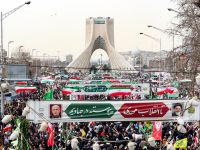NCB Capital, Saudi Arabia's largest investment bank, believes that a growing demand for commodities as physical inputs and investment vehicles has given rise to a commodity 'super-cycle' driven by rapid industrialization and increasing living standards in the face of finite supplies. While the GCC benefits from the oil cycle, its heavy reliance on imports of most other key commodities is creating a particular set of policy challenges for the region.
Rapid income growth and economic development in the emerging economies has transformed the global commodity markets. With the available pool of natural resources typically finite in the case of hydrocarbons and metals, or at least inelastic in the short term in agricultural commodities and renewable energy, the supply side has struggled to keep pace with a dramatic increase in demand.
"With tighter exportable surpluses and mounting costs of boosting production in the face of finite supply, commodity prices seem to be on a secular upward trend, in a so-called super cycle. This is also leading to efforts to ensure supply security through strategic reserves and asset acquisitions," said Dr Jarmo Kotilaine, Chief Economist of NCB Capital, writing in the bank's September GCC Economic Monthly.
In addition, the rising presence of institutional investors highlights the growing appeal of commodities in portfolio diversification and yield enhancement, all of which has prompted growing liquidity inflows into the commodity markets. This is causing considerable short-term volatility in prices as speculative investing amplifies the traditional cyclical movements.
Dr Kotilaine continued, "The economic profile of the GCC region leaves it heavily exposed to commodity price fluctuations. While the region stands to benefit from strong oil prices, the arid climate and limited non-hydrocarbons endowments leave it heavily dependent on imports. Although diversification policies are seeking to address these constraints, strategic acquisitions to control price volatility are likely to become increasingly important."
There are a growing number of efforts to build up strategic reserves in the region, especially in agricultural commodities. Oman has already built up a buffer of between three and four months and both Saudi Arabia and the UAE are in the process of setting up similar systems. GCC public and private sector players have also increasingly developed an international profile in their efforts to secure key commodity supply lines, most obviously in the case of agricultural products. This echoes similar developments in China and India and is likely to grow in importance
Governments are working to boost industrial sectors for which a large domestic or regional market exists, such as is in the regional cement sector, metals extraction, and in petrochemicals. Efforts are also underway to boost the regional supply of base metals, reflected in the aluminium smelter plans for Saudi Arabia's economic cities.
Dr Kotilaine concluded, "The key challenge with all of these endeavours is to ensure their economic viability in the event of significant changes in input costs resulting from possible policy shifts in the face of the widespread use of subsidies."






